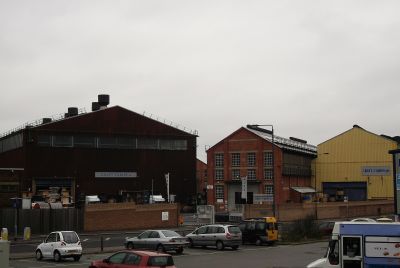Train signal, airport runway melt under extreme UK temperatures
The UK's infrastructure is not designed to handle extreme heat, unlike countries with hotter climate.
The record-breaking heat has turned Britain into a microwave oven, disrupting the daily lives of its citizens.
The National Railways even posted a picture of a molten train signal on Twitter, urging people to check their routes before travelling on the East Coast Line.
They also issued a warning on Wednesday asking people not to take the Midland Main Line from London as the heat has damaged the tracks.
🔥 The East Coast Mainline has re-opened following a fire that spread to the track in Sandy, Bedfordshire - due to the extreme heat. 🌡️
— Network Rail (@networkrail) July 20, 2022
⚠️ Disruption is still to be expected throughout the day, so check before you travel - @nationalrailenq.
➡️ https://t.co/4wBwJJ7g6T pic.twitter.com/qQ1fj0f0NG
Social media platforms are flooded with pictures of molten roads and train signals. Luton Airport had to suspend flights on Monday after the excessive heat damaged part of the runway, according to a report in CBS News.
In a statement, the airport later said that the high surface temperatures had caused a small section of the surface to lift. Meanwhile, many trains had to be cancelled, while some were directed to run at speeds of as low as 20 miles per hour.
"The likelihood of exceeding 40 degrees Celsius anywhere in the U.K. in a given year has also been rapidly increasing, and, even with current pledges on emissions reductions, such extremes could be taking place every 15 years in the climate of 2100," said Met Office scientist Nikos Christidis in a statement.
The UK's infrastructure is not designed to handle extreme heat. The roads and rail networks are not equipped to handle the heat experienced by countries with hotter climates. The heatwave also caused wildfires in several parts of the UK, including London, Kent, Cornwall, and Pembrokeshire.
According to a report by Sky News, the British rail network is only meant for temperatures up to 30C (86F).
Most motorways and roads can handle temperatures beyond 60C, but some local roads are not designed to handle the heat as the basic asphalt used on these roads starts to soften at temperatures of 50C.
The country now needs to design its infrastructure in such a manner that it is able to cope with the rising temperatures. Houses need better ventilation and shading, town planners need to leave more space for trees, while rails and roads need to be able to handle higher temperatures if the country wishes to avoid the meltdown it is experiencing now.






















